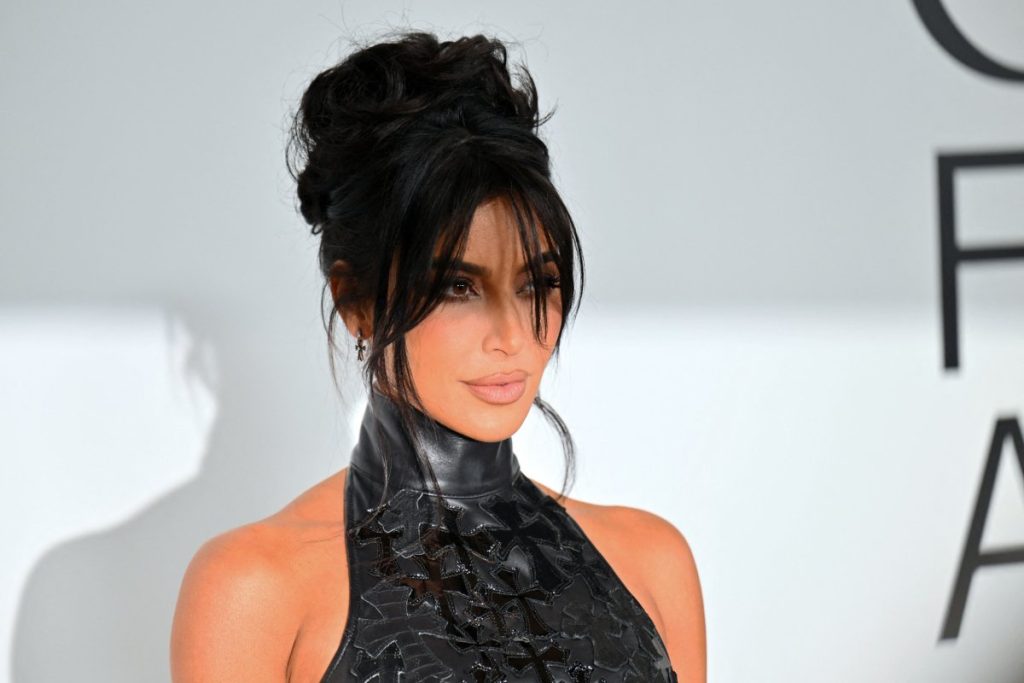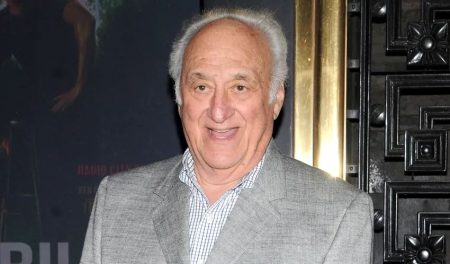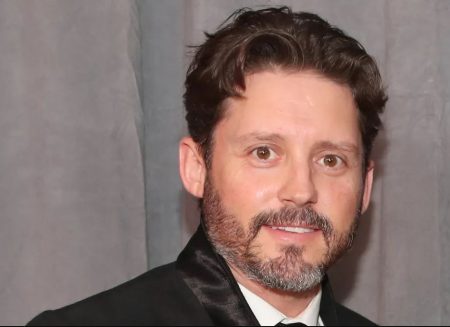A deepfake gone viral.
When a startlingly realistic AI-generated ad began circulating on TikTok and Instagram, featuring Kim Kardashian seemingly promoting a new skincare line, the internet erupted. It wasn’t just the product placement that drew attention—it was how eerily convincing the video looked. Millions were duped into thinking the reality star had endorsed the brand.
But the truth? She hadn’t.
The ad was entirely AI-generated, unauthorized, and deeply unsettling for Kim and many others. Once the truth came to light, backlash swiftly turned from Kim to the creators of the deceptive content. In an era where artificial intelligence is reshaping media, the video ignited urgent questions: Where are the boundaries? Who owns your face?
Kim didn’t stay silent. Her powerful response wasn’t just personal—it sparked a much broader conversation about technology, consent, and the future of identity in the digital age.
II. What Happened: The AI Ad Controversy
The controversy began quietly. A short video appeared on TikTok around mid-July 2025. In it, Kim Kardashian appeared to speak directly to the viewer, promoting a “revolutionary” new skincare serum. The video gained traction fast—within hours, it was reposted across Instagram Reels, racking up millions of views.
Many fans were convinced. “Finally! Kim’s own anti-aging line!” one user commented. Others immediately clicked through links that led to a suspicious ecommerce site offering miracle creams “endorsed by Kim Kardashian.”
Except—none of it was real.
The ad was completely AI-generated. Kim’s face and voice were deepfaked with remarkable precision. No partnership, no approval, no involvement. And when the truth emerged, the online tone shifted dramatically.
Some fans felt betrayed, accusing Kim of “selling out” before realizing she wasn’t part of it at all. The backlash morphed into a different kind of outrage—toward the misuse of celebrity likeness and the ease with which false realities can be created and monetized.
It was a case study in how fast misinformation spreads—and how vulnerable even the most recognizable figures are in the age of generative AI.
III. Kim Kardashian’s Official Response
Kim addressed the controversy head-on with a striking Instagram Story, later reposted to X (formerly Twitter). Her statement was direct and emotional:
“This is not me. I never approved this. This is not an endorsement—it’s digital theft.”
She didn’t mince words. In a follow-up post, she called the incident “a disturbing violation” and condemned it as “exploitation, not innovation.”
Kim expressed deep frustration at the violation of her image and name. “This technology is being weaponized to manipulate, to profit, to deceive,” she wrote. But her concerns extended beyond her own experience. She spoke passionately about the psychological effects such AI could have on young women.
“If even I can be digitally cloned without my knowledge, what message does that send to girls who are constantly comparing themselves to impossible standards?”
Her advocacy resonated. Within hours, celebrities like Khloé Kardashian, Chrissy Teigen, and Jameela Jamil reposted her message in solidarity. “Terrifying,” Chrissy wrote. “We need laws—like, yesterday.”
Kim’s response struck a chord because it wasn’t just about her. It tapped into growing public unease about AI’s rapid evolution and the lack of meaningful safeguards in place.
Her voice added star power to a conversation that is no longer theoretical—it’s already impacting lives, reputations, and industries.
IV. Legal & Ethical Implications
The legality of AI-generated likenesses is murky terrain in the U.S. There’s no federal law explicitly protecting someone’s image or voice from being digitally replicated without consent—especially for public figures.
Instead, legal experts often point to a patchwork of “right of publicity” laws that vary by state. Some states, like California and New York, offer robust protection. Others offer almost none. This legal gray zone leaves celebrities—and everyday people—vulnerable.
Attorney Lisa Bloom told Variety:
“What happened to Kim is shocking, but it’s not yet clearly illegal. Until Congress acts, celebrities are essentially unprotected in many jurisdictions.”
Deepfake ads have surfaced before. Tom Hanks and Scarlett Johansson both recently spoke out against unauthorized AI ads featuring their faces, calling for tighter legislation. Johansson’s legal team filed a formal cease-and-desist last year against a similar violation.
Kim may pursue legal action as well, particularly if the ad creators profited from her image. But this isn’t just a personal issue. It’s a systemic one.
Actors, models, influencers—even ordinary creators—are now at risk of having their likeness used to sell products or spread misinformation without consent.
The entertainment industry is watching closely. Agencies and unions like SAG-AFTRA are advocating for clearer rules around AI use. And Kim’s case may be the flashpoint that forces lawmakers to act.
V. Public Reaction and Fan Support
Social media has been buzzing since Kim’s response. The reactions on X were a blend of shock, concern, and support.
One viral tweet read:
“I thought the ad was real. Now I feel so manipulated. This is beyond scary.”
Another user posted:
“AI is not the future if it steals your identity. I stand with Kim.”
However, not everyone was immediately sympathetic. Some fans initially accused her of being “overdramatic” or “chasing clout.” But after seeing the actual deepfake side-by-side with the real Kim, many walked back their criticisms. The resemblance was too close for comfort.
TikTok creators also chimed in. A popular commentary video by @cyberlawchick (3M views) explained the legal issues in layman’s terms, urging followers to push for legislation.
What became clear is that this is about more than celebrity. It’s about everyone’s digital rights in an AI-saturated world.
People want accountability. They want transparency. And more than ever, they want safeguards against being manipulated by something that looks real but isn’t.
VI. The Future of AI and Celebrity Protection
The incident has reignited calls for updated legislation.
AI ethicists like Dr. Kate Crawford have long warned that unregulated AI poses real risks to privacy and identity. In an interview with TechCrunch, she noted:
“Without strong legal frameworks, we are sleepwalking into a world where no one controls their image anymore.”
Some lawmakers are beginning to take notice. The proposed “NO FAKES Act,” introduced in Congress in late 2024, aims to criminalize unauthorized digital replicas of public figures. But it’s still in committee.
Kim, already a public advocate for criminal justice reform and a student of law herself, could become a pivotal figure in the movement to establish digital likeness rights.
Her platform gives her reach. Her experience gives her credibility. And her resolve, made clear in her posts, could make her a powerful advocate for change.
We may be watching the beginning of a new kind of celebrity activism—one where the battle is not just for reputation or legacy, but for control over one’s digital self.
VII. Closing Thoughts
Kim Kardashian’s bold response to the deepfake skincare ad wasn’t just a personal defense—it was a public declaration.
Her words—“This is exploitation, not innovation”—cut through the noise and raised alarm about the direction technology is heading.
In a world where AI can replicate anyone with terrifying accuracy, the need to define digital consent and protection has never been more urgent.
This isn’t just about celebrities. It’s about your face, your voice, your reality.
Kim may not have signed up for this fight—but she’s in it now. And given her influence, she might just help change the game for everyone.
Final quote: “This is not me. I never approved this.”









